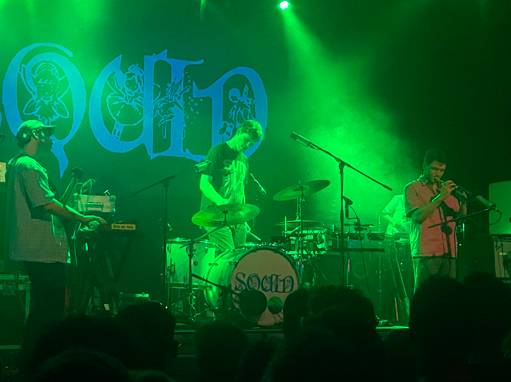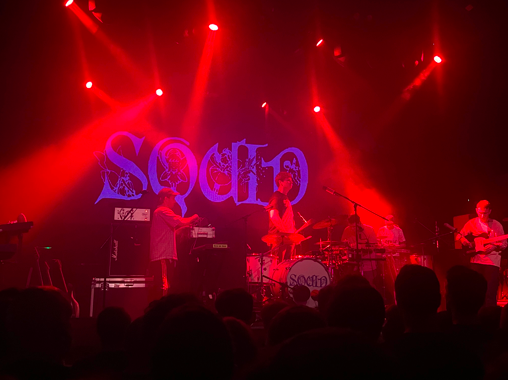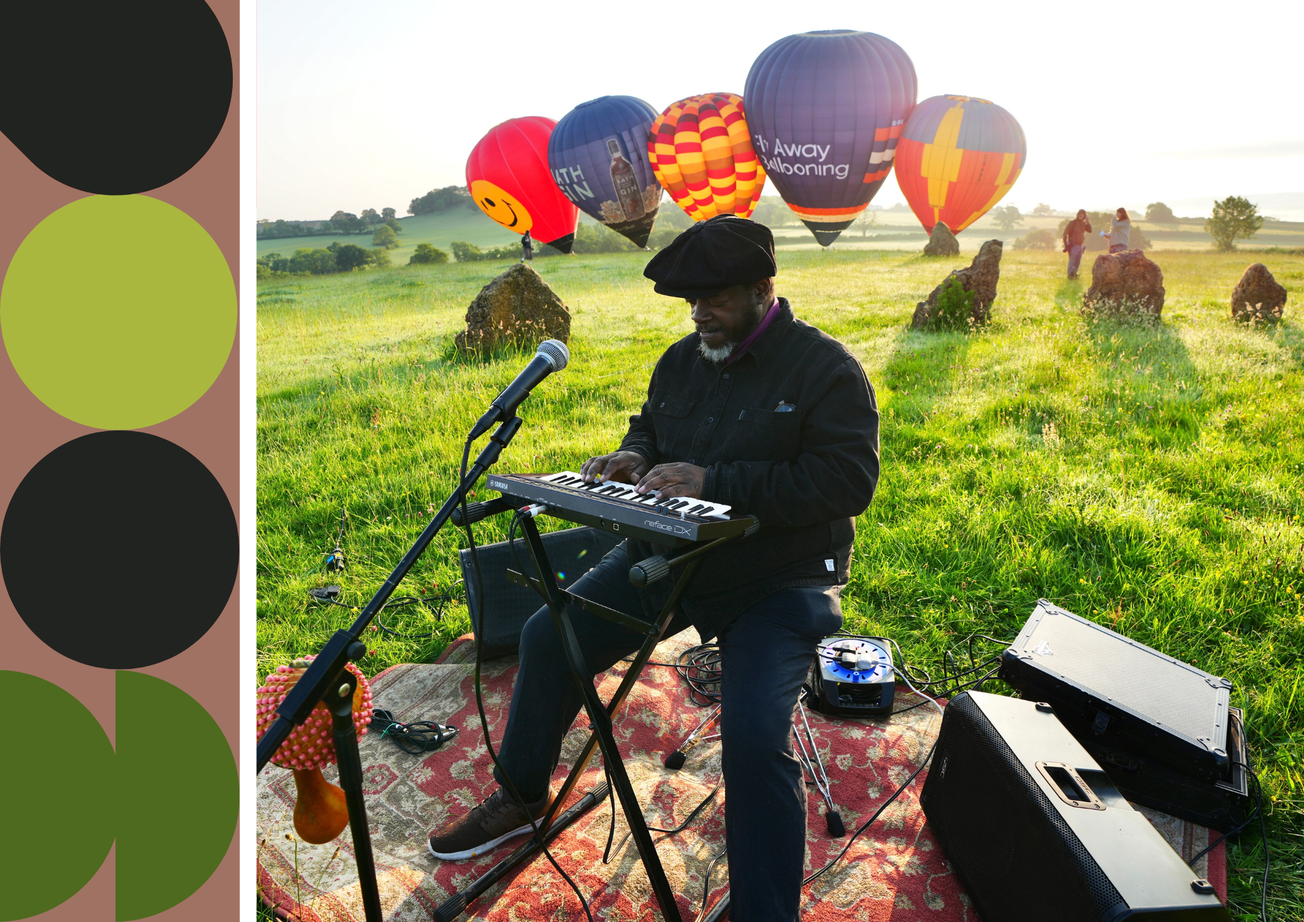By George Dean, Proofreader
If you asked me what I think an industrial orchestra of aliens invading Earth would sound like, I would point you in the direction of Squid, a Brighton-based collective dressed like a hipster IT team.
Squid were at Truck Festival over the summer, where my image of them was defined by the sea of mud I had to wade through to make it to the stage. Their set was delightfully disorientating, as each song bled into the other to the point I did not know where one started and the other ended, surprising the listener through the injection of varying and overlapping styles which make them impossible to pin down.
SWX may have been a contrasting environment, not least due to the diverse age range of the crowd, but the multiverse of thrilling confusion one enters during a Squid set was no different.
Though Squid are impossible to pin down to a singular sound, the influence of ‘Krautrock’ is a good starting point to understand what informs their musical composition; an avant-garde movement of experimental rock, active in Germany throughout the 1960s and 70s, ‘Krautrock’ formed an eclectic style borrowing from psychedelic and electronic sources. These influences were reflected when electronic music pounded from the speakers in the lead-up to Squid’s set, more like a Berlin techno club rather than a Bristol post-punk gig.

South-London based six-piece Blue Bendy were the evening’s warm-up act, setting the tone with a gentle intensity through their melding of orchestral pop and industrial rock. Lead singer Arthur Nolan was oddly gripping, always on the edge of tears and self-conscious of the spotlight being on him, insistently proclaiming “very kind of you thank you” in response to the applause following each song. The latter part of their set was somewhat lost on me, as they attempted to force climaxes for which there had been meagre build-up. This indicates the difficulty of retaining audience interest in experimental rock sets – not all are as adept as Squid in this realm.
During Squid’s stage set-up, I was drawn to an electric cello, which looked more like an F1 car than a string instrument, in addition to an expansive stand-up percussion set in the right-hand corner manned by a new member of the band.
For their opening, they lurched into unexpected percussion sounds which preceded the opening to ‘Swing (In A Dream)’, the opener on their most recent album O Monolith. The unconventional structure of the band glimmered on stage. Lead singer-combined-drummer Ollie Judge stood up from his kit periodically, performing awkward jerks which would turn into a dance, strange and deliberate in the way it matched the band’s masterpiece of instrumental chaos. Laurie Nankivell alternated between trumpet sections which provided a reset to the cacophony of Squid’s industrial alien war march, playing backing drums, as well as shaking and strumming various miscellaneous objects.
Judge’s erratic ‘sprechgesang’ lyrical delivery contributed more to rhythm than melody. Though his lyrics demonstrate a delicate combination of absurdism, wit, and satire, it is Squid’s instrumentals which carried the night.
The moshing began with the performance of ‘G.S.K.’. Bedlam was injected into the crowd as Judge mocked British multinational pharmaceutical company GSK, drawing attention to the depressing, apathy-inducing nature of the modern office job: “On Concrete Island, well, I’ve been here too long”. This was my favourite moment in the set, as the song showed how Squid transform the mundane into the paranormal. .

Before re-igniting the focus of the crowd over ‘Narrator’, Judge plainly declared: “like most of our songs, this one starts quiet, but ends loud”.
Squid leant into a more raw, punky sound, with Judge ending the performance by leaving his drum kit and teasing his way to the front of the stage. The band members had put every last ounce of sweat and toil into this show, and the performance solidified Squid as the eccentric, art-industrial rock outsiders of modern British post-punk.
Featured Image: Studio UJ / Ian Cheek Press
Have you seen Squid live?








